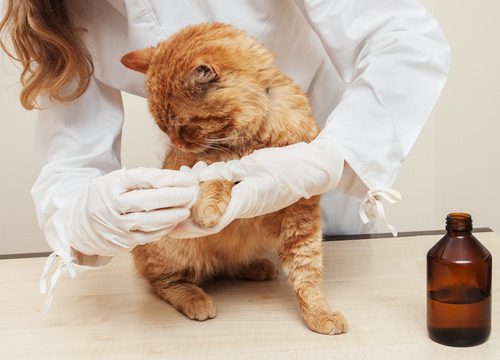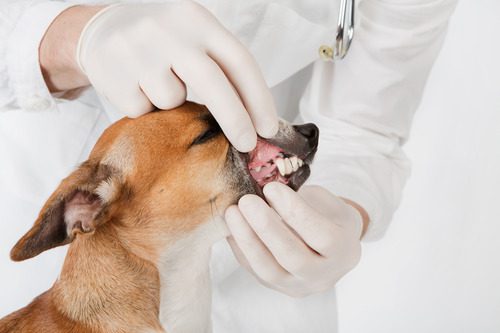
Dogs can suffer from allergies just like humans, and Benadryl is a common medication used to treat allergic reactions in people. But can you give Benadryl to your dog? It’s important to understand the risks associated with giving Benadryl to dogs and the correct dosage so that your pup can get the relief they need without any adverse side effects.
While dogs can have Benadryl, you should not give Benadryl to your dog without first consulting a veterinarian. Benadryl is an antihistamine that can be toxic to dogs in large doses and can have serious side effects. Your vet can provide guidance on the appropriate dosage and medication for your pet.
Giving Benadryl to a dog is safe and effective for allergy relief, but dosage and side effects must be understood. This article provides all the info needed. Read on to help your pup with allergies.
Overview and Benefits of Benadryl
Benadryl is an over-the-counter medication used to treat allergies in humans, but it is also often used to treat allergies in dogs. It can be used to treat a variety of canine skin conditions including hives, insect bites, contact dermatitis, and seasonal allergies. Benadryl works by blocking the action of histamine, a chemical released when the body comes into contact with an allergen.
The drug is typically given orally, but can also be applied topically in the form of a cream. The main benefit of Benadryl for dogs is that it relieves allergy symptoms quickly and effectively, making it an ideal choice for short-term relief. However, Benadryl should only be used under the direction of a veterinarian, as improper dosage or prolonged use can be dangerous.
Should I Give Benadryl to my Dog?
Giving Benadryl to your dog is not always recommended, as it can lead to serious side effects. It should only be used as directed by a veterinarian, and only after the vet has determined that it is the best option for your pet.
The dosage and frequency of administration should also be determined by your vet. Furthermore, always check the label to make sure the medication does not contain any ingredients that may be toxic to dogs, such as acetaminophen or ibuprofen.

Potential Benefits
Benadryl can treat allergies and a variety of other ailments, such as motion sickness and insect bites.
Some of the benefits of using Benadryl for dogs include:
- Relieving itching and inflammation caused by allergies
- Reducing symptoms of motion sickness
- Treating insect bites
- Calming anxious dogs
- Relieving minor pain
- Reducing allergic reactions to food, drugs, and chemicals
Risks Involved
The active ingredient in Benadryl, diphenhydramine, can be toxic to dogs when taken in large doses. It is important to consult with a veterinarian before giving your dog Benadryl as an over-the-counter medication.
Possible risks associated with giving your dog Benadryl include:
- Drowsiness
- Vomiting
- Diarrhea
- Lethargy
- Loss of appetite
- Agitation
- Excessive panting
- Rapid heart rate
- Seizures
It is important to follow your veterinarian’s instructions and dosage recommendations when giving your pet any medication. If you are ever concerned about your dog’s health after giving them Benadryl, contact your veterinarian right away.
How to Safely Give Benadryl to Dogs
It is important to consult with a veterinarian before giving Benadryl or any medication to a dog. The proper dosage and frequency will depend on the specific needs and medical history of the individual dog. Benadryl can be given orally, either by mixing it into food or by giving it in pill or liquid form. It is important to follow the specific instructions provided by the veterinarian or the product label. It is also important to ensure that the dog is not allergic to the medication and to watch for any potential side effects, such as drowsiness or difficulty breathing. If the dog experiences any unusual symptoms or reactions after taking Benadryl, it is important to contact the veterinarian immediately.
What is the Proper Dosage?
The proper dosage of Benadryl for a dog will depend on several factors, including the size and weight of the dog, the specific condition being treated, and the strength of the medication. It is important to consult with a veterinarian before giving Benadryl to a dog to determine the appropriate dosage.
In general, the recommended dosage of Benadryl for dogs is 1 mg per pound of body weight. For example, a 50-pound dog should be given 50 mg of Benadryl. This dosage can be given up to three times per day as needed. However, it is important to note that this is just a general guideline, and the specific dosage may vary depending on the individual dog and the situation.
It is also important to note that Benadryl is available in various formulations, including tablets, capsules, and liquid. The dosage will vary depending on the form of the medication being used. It is important to carefully read and follow the instructions provided on the product label or those given by the veterinarian.
How Long Does Benadryl Take to Work?
Benadryl typically takes effect within 30 to 60 minutes after it is given to a dog. However, the exact time it takes for the medication to work can vary depending on a number of factors, including the specific condition being treated, the size and weight of the dog, and the individual dog’s metabolism. In some cases, it may take longer for Benadryl to take effect.
What are the Side Effects?
As mentioned above, there are risks with Benadryl. The most common side effects of Benadryl in dogs are drowsiness and dry mouth. Other potential side effects may include loss of appetite, vomiting, diarrhea, and difficulty urinating.
In rare cases, more serious side effects can occur, such as difficulty breathing, tremors, or changes in behavior. If a dog experiences any of these symptoms after taking Benadryl, it is important to contact a veterinarian immediately.
Conclusion
In conclusion, it is important to be aware of the risks associated with giving Benadryl to dogs. If your dog does suffer from allergies, it is essential to consult a vet for the correct dosage and medication that can provide relief without any adverse effects.
If you have any questions regarding your pet’s health, please give us a call at (615) 778-0880 or request an appointment online! Here at Animal Ark Animal Hospital in Franklin, TN, we are ready to help you and your pet with whatever your needs may be!
Recent Posts
Vaccinations for Dogs: The Importance of Vaccinating Your Dog This Spring
Springtime brings new beginnings and a breath of fresh air, but it also ushers in…
Common Pet Problems Requiring Urgent Care
When our beloved pets face sudden health issues, it can be a worrying time for…
Pet Dental Health Month: Why You Should Give Your Pet a Healthy Smile!
February is Pet Dental Health Month, a time dedicated to raising awareness about the importance…
About Us
Animal Ark Animal Hospital offers exceptional, quality pet care with a highly skilled and compassionate staff who understands what a pet means to you and your family.



